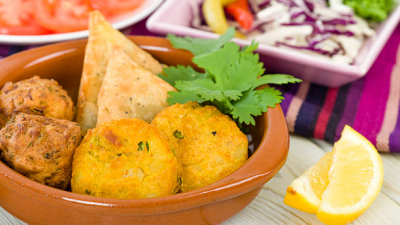With the fast pace of life today where processed foods and quick meals have become the norm, there is a growing interest in going back to more wholesome, balanced eating habits. Ayurvedic cooking is an ancient holistic nutrition system that has seen a resurgence in popularity in modern kitchens. By knowing and applying Ayurvedic cooking principles we can make meals that do not only nourish our bodies but also promote overall well-being and balance.

Understanding Ayurvedic Cooking Principles
Ayurveda means “the science of life” and is a 5,000 year-old comprehensive health care system from India. At its foundation, Ayurvedic cooking principles are based on the notion that food is medicine; hence proper nutrition becomes essential in maintaining good health and preventing diseases.
The Three Doshas
Central to Ayurvedic cooking is the concept of the three doshas: Vata, Pitta, and Kapha. These are energies believed to govern various physiological and psychological functions in the body:
- Vata: Associated with air and space elements, governing movement and communication.
- Pitta: Linked to fire and water elements, responsible for metabolism and transformation.
- Kapha: Connected to earth and water elements, maintaining structure and lubrication.
Ayurvedic cooking principles suggest that by eating foods that balance our dominant dosha(s), we can achieve optimal health and well-being.
Key Ayurvedic Cooking Principles
- Eat According to Your Dosha: Tailor your diet to balance your dominant dosha(s).
- Prioritize Whole Foods: Focus on fresh, seasonal, and minimally processed ingredients.
- Consider the Six Tastes: Include sweet, sour, salty, pungent, bitter, and astringent flavors in meals.
- Mindful Eating: Pay attention to how, when, and where you eat, not just what you eat.
- Proper Food Combining: Certain food combinations are considered more digestible and beneficial.
- Cooking Methods Matter: Different cooking techniques can affect the qualities of food.
Incorporating Ayurvedic Cooking into Modern Life
While the concept of Ayurvedic cooking might seem complex, integrating its principles into your daily life can be surprisingly simple and rewarding.
Start with Spices
Spices play a crucial role in Ayurvedic cooking. They not only add flavor but also offer numerous health benefits. Some essential Ayurvedic spices include:
- Turmeric: Anti-inflammatory and detoxifying
- Cumin: Aids digestion and metabolism
- Coriander: Cooling and detoxifying
- Ginger: Improves digestion and circulation
- Cardamom: Supports heart health and digestion
Try incorporating these spices into your everyday cooking to enjoy their benefits.

Embrace Seasonal Eating
Ayurvedic cooking principles emphasise eating foods that are in season so as to ensure you take fresh nutritious foods while keeping the body aligned with the natural rhythms.
Practise Mindful Eating
Often we eat on the run or while doing other things. However, Ayurveda prescribes mindful eating – sitting down at meals, chewing slowly and savouring every bite. This practice enhances digestion and improves one’s overall relationship with food.
Experiment with Ayurvedic Recipes
To get started, try out some simple ayurvedic recipes such as warming kitchari (rice-lentil blend) or cool cucumber raita; ideal for first-timers in this kitchen style.
The Benefits of Ayurvedic Cooking
Adopting Ayurvedic cooking principles can lead to numerous health benefits:
- Improved Digestion: By focusing on easily digestible foods and proper food combining, Ayurvedic cooking can help alleviate digestive issues.
- Better Energy Levels: Eating according to your dosha can help balance your energy throughout the day.
- Enhanced Mind-Body Connection: Ayurvedic cooking encourages a more mindful approach to eating, fostering a stronger connection between mind and body.
- Natural Detoxification: Many Ayurvedic ingredients and cooking methods support the body’s natural detoxification processes.
- Stress Reduction: Certain Ayurvedic herbs and spices are known for their stress-reducing properties.

Challenges in Modern Ayurvedic Cooking
While the benefits of Ayurvedic cooking are numerous, incorporating these principles into a modern lifestyle can present some challenges:
- Time Constraints: Preparing fresh, balanced meals can be time-consuming in our fast-paced world.
- Availability of Ingredients: Some traditional Ayurvedic ingredients may be hard to find in certain areas.
- Conflicting Dietary Advice: With so many nutrition philosophies out there, it can be confusing to know which to follow.
Despite these challenges, many find that the benefits of Ayurvedic cooking far outweigh the difficulties.
Conclusion: Bringing Ancient Wisdom to Your Kitchen
Ayurvedic cooking principles offer a holistic approach to nutrition that goes beyond mere calorie counting or fad diets. Understanding and practising these ancient concepts within our modern day kitchens will help us make meals that are delicious and also sustain our general well-being as well as healthful living completely.
If you have specific health conditions you want to address, need more energy or perhaps want a better relationship with food then incorporating some elements of ayurvedic cookery would help. Start small by adding a few rules into your daily routine and you may soon experience firsthand how this age-old wisdom transforms your life for good.
Remember, when it comes to healthy eating through Ayurveda, every person has their own path. Pay attention to your body signals, try different foods together; but most importantly love yourself effectively while dining with this timely tradition.
Also Read- Add a little ghee: Reaping the North Indian Ayurvedic Benefits


















[…] Also Read- Ayurvedic Cooking Principles: Ancient Wisdom In Modern Kitchens […]